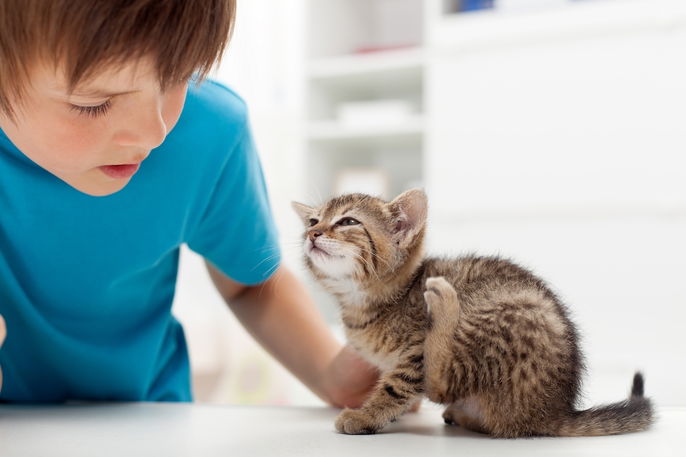Flea bites in humans can cause bumps on the skin that measure around 3 to 10 mm in diameter. These bumps are referred to as papular urticaria, and they will often have a pinpoint in the center of them, which indicate a bite mark. Bumps caused by flea bites will most typically appear around the waist.
Fleas are parasites that usually attack animals, to feed on their blood, and will resort to biting humans as a last resort.
Treatment for flea bites should be directed by a family doctor or dermatologist and is aimed at relieving symptoms. The doctor may prescribe oral or topical antihistamine medications and/or corticosteroid ointments.

Flea bite symptoms
The main symptoms of a flea bite are:
- Red, raised and round bumps, approximately 3 to 10 mm in diameter
- Intense itching
- Point in the center of the bump, which indicates the location of the flea bite
Flea bites are most common on the waist, arms and legs, and generally areas of the skin that are not protected by clothing.
Possible complications
In some cases, flea bites can lead to a skin infection due to intense scratching that breaks the skin integrity. This can make the skin prone to bacterial growth, leading to symptoms like a fever, headache, body pain and weakness.
Furthermore, flea bites can also cause an allergic reaction in people with hypersensitivity to the saliva of these parasites, resulting in excessive itching, difficulty breathing and swelling.
Treatment options
Treatment for flea bites are aimed at relieving symptoms. The doctor may prescribe soothing creams, oral or topical antihistamines and/or a corticosteroid cream or ointment.
In addition, home remedies can also be used to soothe itchy skin, such as taking a bath with cold water, applying a wet compress with chamomile tea or applying oat paste on the spot.
How to prevent flea bites
To prevent flea bites, you should:
- Ensure in-home pets are dewormed to prevent the spread of parasites.
- If you pet has fleas, you should treat the infestation with oral pills as prescribed by your veterinarian to help eliminate the fleas. Your pet may also need to be washed with specific shampoo.
- Regularly wash the bed the pet sleeps on, as well as rugs and carpets, weekly.
- Keep the cushions and corners of the sofa clean, as fleas seek deep, hidden and dark places to lay their eggs to make them difficult to find.It is therefore important to clean these places thoroughly using a high-power vacuum cleaner with a disposable bag.
External environments, such as backyards and other places where pets roam, can be sprayed with specific products. Furthermore, washing the floors is also an effective measure, as immature forms of fleas do not like humidity. Alternatively, you can use companies specialized in pest control.
Frequently asked questions about fleas
Some frequently asked questions about fleas are:
1. Can I get a flea bite even if my house has not been lived in for several months?
Flea eggs can take weeks or months to hatch and may lie dormant during the winter, releasing the flea when the house or garden is re-inhabited.
2. Why do I keep getting bites if the bedding has no signs of fleas?
Newly adult fleas are very small, as are their feces, so they easily go unnoticed. Even when washing bedding, fleas can get stuck in the clothes or in another hidden place in the room.
3. If my pet has fleas, can I also get bitten?
Generally, fleas only bite humans as a last resort. Therefore, if the pet has a flea infestation, or even if one of the people living in the house is bitten, this does not mean that everyone in the household will be infected.
It is important to notify all members and guests of the household that your pet has fleas, as they can be transmitted through clothing and less visible areas.
4. My child appears to have a flea bite. If it's a flea, will I also be bit?
Children have a more severe reaction to flea bites than adults. The intensity of this reaction decreases over times, because the person gains immunity to flea saliva and tolerance to their bites. This is why adults may have more discreet or mild bumps-
5. My pets only live indoors, can they get fleas?
If a human carries a fertilized female flea into the home, domestic pets can become infested within a few weeks.






























